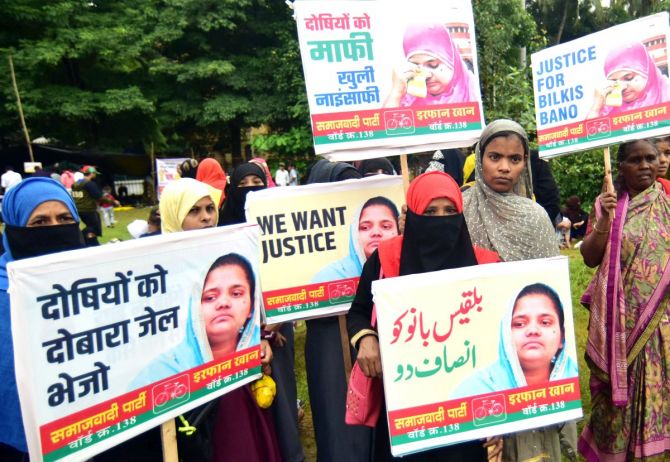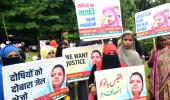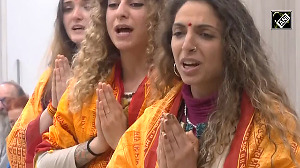There are some convicts who are "more privileged", the Supreme Court said on Thursday while hearing pleas challenging the grant of remissions to 11 convicts in the Bilkis Bano gangrape case and the murder of seven of her family members during the 2002 Gujarat riots.

One of the convicts told the top court that the grant of remission for reformation and rehabilitation of the convicts is a "settled position internationally" and the argument of Bilkis Bano and others that he cannot be granted the relief due to heinous nature of the offence cannot be invoked now after the executive took a decision.
"We understand the concept of remission. This is well-accepted. But here, they (victim and others) are questioning this in the present case," a bench comprising justices BV Nagarathna and Ujjal Bhuyan told senior advocate Siddharth Luthra, appearing for convict Ramesh Rupabhai Chandana.
The bench asked the lawyer to assist it by providing judgements delivered on pleas challenging the grant of remission, saying that usually cases are filed against denial of such benefits by states.
"There are some convicts who are more privileged in getting these benefits," the bench observed.
But the legal position and the policy remain the same, Luthra said, adding, "Rehabilitation and reformation of life term convicts are a settled position internationally."
The arguments that the offence was heinous can be taken during the judicial proceedings and now, this is not available for opposing the state action that too after the convicts spent 15 years in jail.
"Other side says retribution or deterrence and nothing less. That, in my opinion, is not an argument that can be made at this stage... the grant of remission cannot be approached through a punitive attitude. This is not in line with the policy of Indian law," he said.
The senior lawyer said a Mumbai sessions court has applied its judicial mind on the state action and moreover, the convicts were handed down life term "simplicitor".
The court will resume hearing on the pleas on September 20. Earlier, the bench had questioned Chandana for depositing the fine imposed on him when the hearing on the pleas challenging his remission was underway before it.
Prior to this, the top court had on August 17 said state governments should not be selective in granting remission to convicts and the opportunity to reform and reintegrate with society should be given to every prisoner, as it told the Gujarat government which defended its decision of premature release of all 11 convicts.
TMC MP Mahua Moitra had told the apex court that the gang-rape of Bilkis Bano and murder of seven of her family members were a "crime against humanity", and accused the Gujarat government of having failed to exercise its constitutional mandate of protecting the rights of women and children by granting remission to the 11 convicts in the "horrendous" case.
Besides the petition filed by Bilkis Bano contesting the remission granted to them, several other PILs including one by CPI-M leader Subhashini Ali, independent journalist Revati Laul and former vice-chancellor of Lucknow University Roop Rekha Verma have challenged the remission. Moitra has also filed a PIL against the remission.
Bilkis Bano was 21 years old and five months pregnant when she was gang-raped while fleeing the horror of the communal riots that broke out after the Godhra train-burning incident. Her three-year-old daughter was among the seven family members killed in the riots.











 © 2025
© 2025